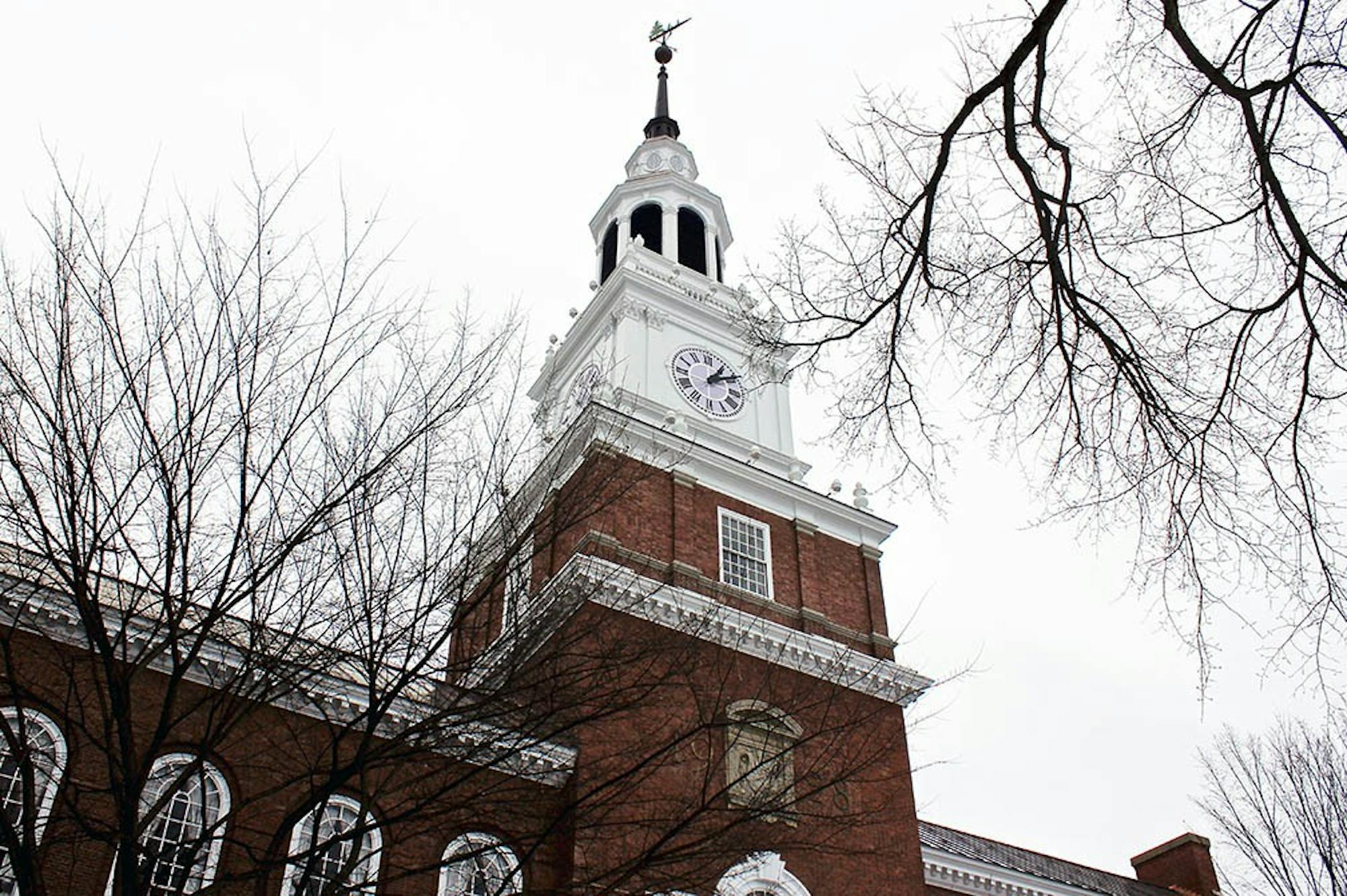Several faculty and staff members have formed Faculty and Staff for Justice in Palestine, a group that represents “an alternative voice on campus for discussion of the conflict in the Middle East, and the U.S.’s role in it,” according to an email from history professor Udi Greenberg — a member of the group. Greenberg said in an interview that the group consists of around 50 faculty and staff from across the five schools at the College.
The group formed due to “multiple events,” such as the arrest of two undergraduate students in front of Parkhurst Hall on Oct. 27, 2023, according to Greenberg.
“The arrests of the students in the fall is one of multiple events that led to the formation of this group,” Greenberg said. “It was also responding, obviously, to the events that are going on in Israel and in Gaza, to the shooting of Palestinian students in Vermont and to [the] many protests — and efforts to repress protests — in other campuses in the United States.”
According to Eastern European, Eurasian and Russian studies professor Ainsley Morse, the group is connected to “sister organizations” with similar names. Faculty for Palestine Network is a “national network of organized academic chapters” with over 80 chapters on college campuses, according to its website.
The group, which started with a “handful of faculty,” grew through emailing “other faculty that [the founding members] thought might be interested,” according to Greenberg.
Medicine professor Donald Kollisch, who is also a group member, noted that although faculty members come from different academic backgrounds, he feels that the group’s mission is “an important issue that needs to be addressed in our workplace and across the university.”
“We know that there are faculty and staff who feel strongly that Justice in Palestine is an important issue that needs to be addressed in our workplace and across the university,” Kollisch said. “It’s not limited to people whose professional work seems to be touching more directly on the issues of Palestine — it’s across the board,” Kollisch said.
Greenberg added that “regardless of our background and regardless of our professional interest,” the group shares “the belief that the cause of Justice in Palestine is something that should be advocated for and is relevant.”
The group plans on holding several events on topics related to Palestine, such as Palestinian culture and politics and the role of the U.S. in the Israel-Palestine conflict, Greenberg said. In addition, Morse said that the group hopes to “be invited to participate in the dialogues that are being arranged on campus.”
“We would like to think that we were not invited to the table because they did not know we were here,” Kollisch added.
Greenberg said he believes Pro-Palestinian activism is “unfortunately” viewed as controversial in the U.S., which played a part in why College faculty and staff with this position decided to form a collective.
“The position of calling for Justice in Palestine unfortunately is not uncontroversial in the United States, and as [Morse] said, is part of the purpose of this group,” Greenberg said. “For those who don’t feel comfortable expressing [that position] as individuals, they have some form of collective house, collective arm or collective framework … to articulate their thoughts.”
However, Morse noted that Faculty and Staff for Justice in Palestine aims to be a “visible presence” on campus,” especially for students who share similar views.
“Those of us who are in the group represent the position of wanting to be a strong voice and supportive of the plight of the Palestinian people, but more specifically to Dartmouth, we want to be a visible presence … to represent a viewpoint that is not necessarily getting a big platform on campus,” Morse said. “It is also important for students … to know that there are people who represent this position among the faculty and staff.”
According to Greenberg, Faculty and Staff for Justice in Palestine will have a “formal announcement” this week on their Instagram.
Daniel Modesto ’24 is the News executive editor. He is from Brooklyn, New York, and is a Native American and Indigenous Studies major modified with Latin American, Latino and Caribbean Studies.




